If you’re working in the field of product development or project management, you’ll have noticed the term scrum master. Based on the name, it makes sense that the scrum master would help run the Scrum. And that’s certainly true, but they also do much more than that.
In the next few minutes, you’ll learn all about the Scrum Master role, what they do, which techniques they use in their position, and a tool any scrum master can use to keep their team on the right track. Let’s address what this buzzword actually means.
What is a scrum master?
As the name suggests, the scrum master’s expert domain is well, scrum. The scrum master’s role is to guide the team by ensuring they follow the scrum framework, practices, and values.
Scrum has a clearly defined set of roles and rituals so the scrum master helps the team adhere to this strategy, but is often flexible and open to ways to improve the team’s workflow.
The scrum master’s main role is to facilitate the scrum processes, helping team members get work done by removing issues in their way. That may sound vague, but we’ll clarify what that all means below.
What does a scrum master do?
Before we get into the Scrum master’s responsibilities, let’s take a moment and provide some context.
There are two key Scrum principles that affect team management: self-organization and collaboration.
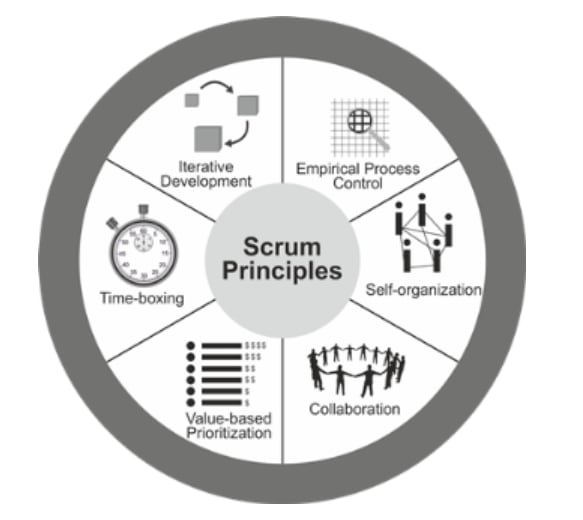
Because the scrum team is typically small—around four to eight people—, they’re typically self-organized, agile, and flat in structure.
Despite the term scrum master, scrum teams aren’t hierarchical. All roles are valued for their contribution equally, and it’s the combination of the team’s knowledge, skills, and experience that produces results.
Now how does this relate to the scrum master? The scrum master is there not to set rules or manage output, but to “serve” the team by facilitating daily scrum, sprint planning, sprint reviews, and sprint retrospectives until the team can run those meetings themselves.
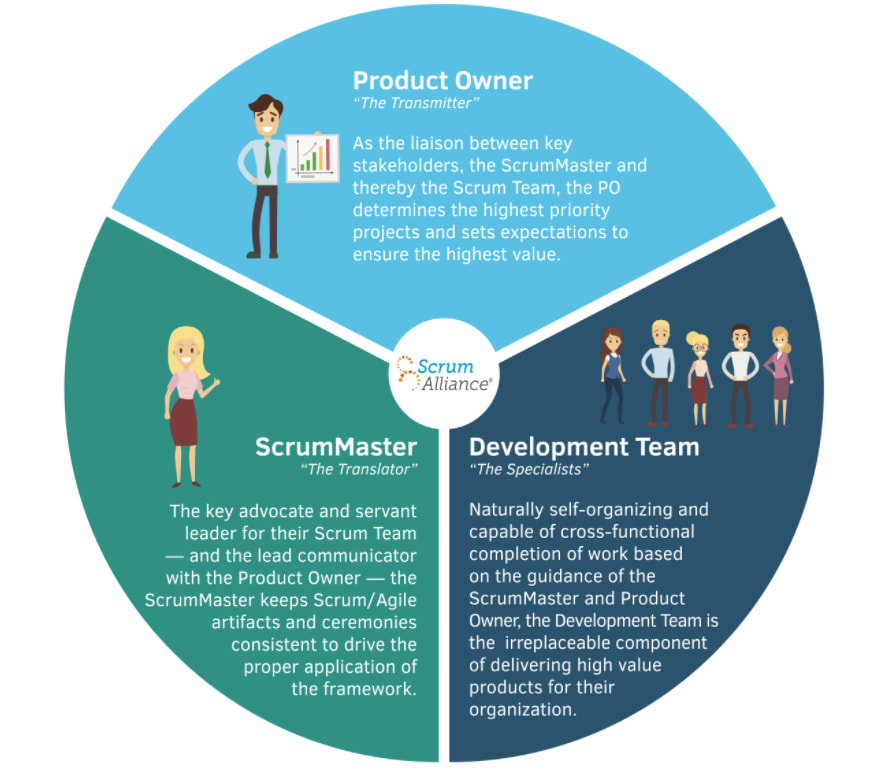
The scrum master also:
- Removes roadblocks – during sprints, scrum teams may come across roadblocks or bottlenecks. If the development team can’t resolve the problem, the scrum masters will solve the issue by collaborating with other team members, communicating with managers, or finding or creating a solution.
- Prevents scope creep – during iteration and sprint planning meetings, scrum masters may help create sub tasks or estimate tasks to ensure the team doesn’t over commit themselves and face scope creep.
- Oversees the board – scum masters are in charge of the scrum board and make sure all items are up to date and all the necessary tools are up and running.
- Holds 1:1 meetings – some scrum masters foster communications when teams disagree about processes and work styles. Scrum masters will meet with a team member 1:1 and resolve any issues as they arise.
- Increases or maintains team efficiency – the scrum master makes sure everyone is productive. If a computer is broken or a team member needs something to get the job done, the scrum master addresses the distraction and gets the team back on track.
Alongside agility, many successful scrum masters use several methods to motivate their team and help them stick to the scrum framework, from fostering communication to coaching.
What techniques could the scrum master use?
Scrum masters need to—for lack of a better word— ‘master’ a few techniques to make sure the team can work as smoothly as possible. Here are a few techniques they may use:
Open communication – Sometimes, a scrum master needs to help manage stress and conflict to maintain team productivity and collaboration. One way to manage conflict is by fostering a comfortable environment where team members feel open to communicating with each other and solving issues. Whether through 1:1 chats or team meetings, scrum masters can utilize open communication to keep processes smooth.
Problem solving – Another technique scrum masters can use is problem solving. Scrum masters can help the team understand the root of their issues and help brainstorm ways to solve them. Scrum masters can also use open dialogue to help the team decide the best way to overcome roadblocks.
Coaching – For effective sprints and project outcomes, Scrum masters must make sure team members stay committed to a learning mindset. This can include facilitating meetings in a way where team members learn from each other’s work, showing the team how to provide honest feedback, and raising morale as needed.
Whichever techniques they use, a scrum master’s role can be summed up by the tweet below:
A Scrum Master is a facilitator, not a manager. They don’t ‘do’ the doing, and they don’t manage the doing, but they do help the doing get done.So far, we’ve talked about the role of a scrum master, but not every business has the resources—or desires—to hire or employ someone for this specific position. Small teams at a startup for instance, or even larger companies must fill in the gaps and produce results. Any team can manage their agile workflows with a Work OS, like monday.com.
Manage a Scrum using monday.com is easy
Any productive development team needs to collaborate and stick to its agile principles. With a Work OS, teams can easily see who’s working on what and the current status of each task.
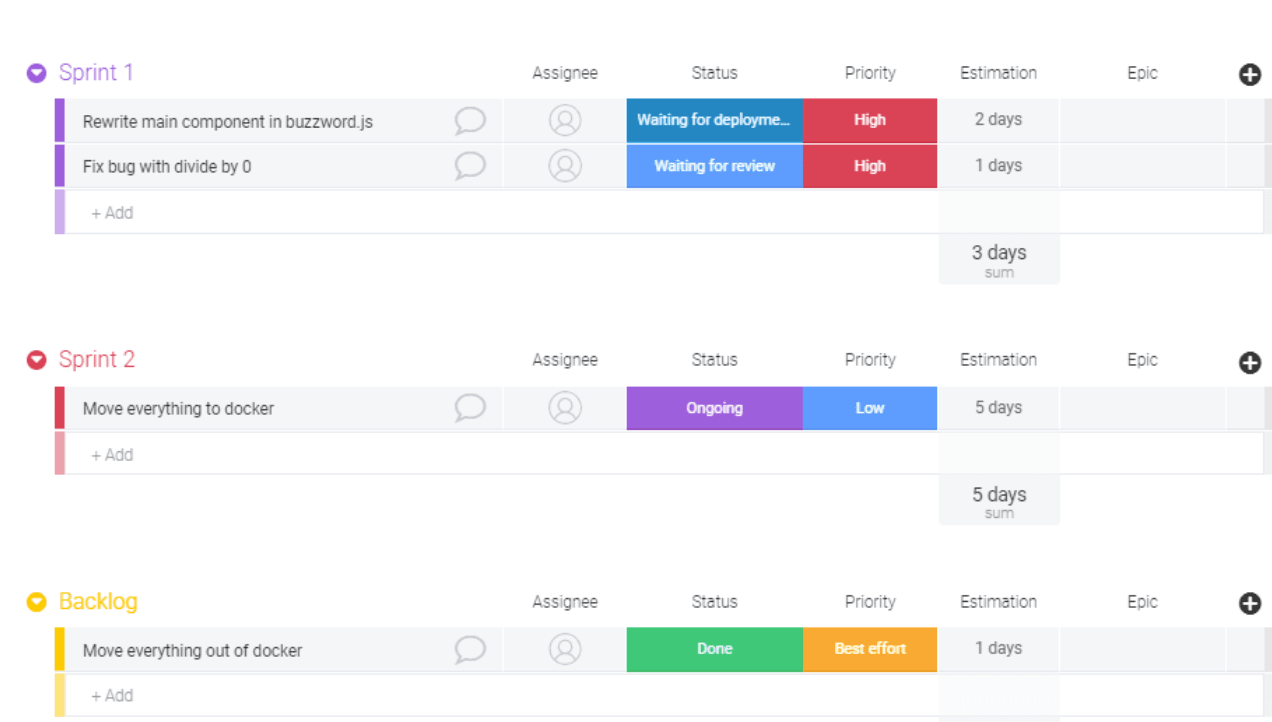
By using various views on monday.com (such as the table view shown above), teams stick to the Scrum principles by allowing team members to self-organize to get work done and collaborate on problem solving if things get stuck.
Once the development process is underway, the team stays up-to-date with each other through daily stand-up meetings. Post meeting, team members can recap their learnings, notes, suggestions, or comments by writing them down on team board. This keeps all conversations within the context of their work and helps foster open, transparent communication.
When teams self-manage, the daily stand-up provides an opportunity to identify what needs to change to resolve the issue, and who’ll take action. On monday.com, team members can assign each other items or to-dos easily, creating automated workflows that alert them to upcoming deadlines, when a status changes, or if they want to automate creating a new item in specific timeframes.
monday.com allows teams to work together, communicate transparently, and spend less time on manual repetitive work.
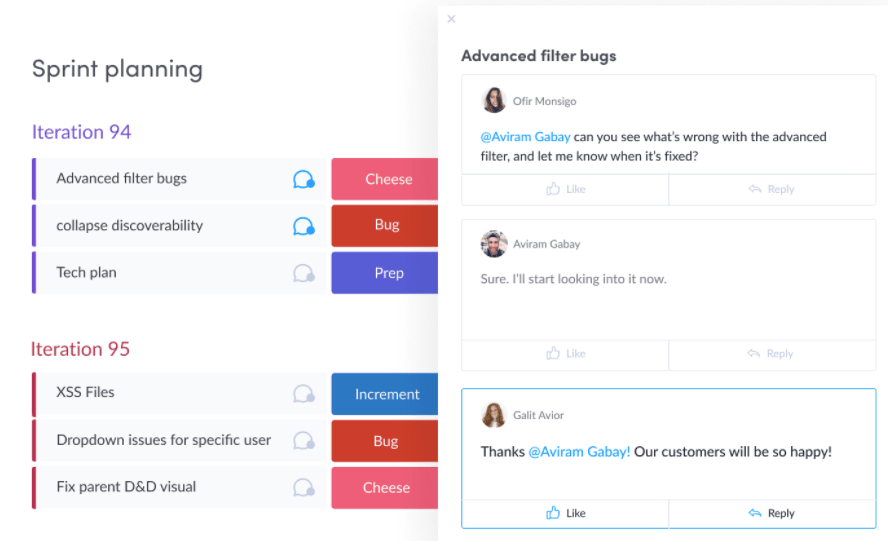
The monday.com Work OS has more than eight different data visualizations, which are ideal for providing team members and stakeholders with information on the current status of work and how the outcome of this sprint links to overall project progress.
Finally, for sprint retrospectives—where teams reflect what went well during the sprint and what could be improved upon—monday.com offers a sprint retrospective template to capture the outcome of the discussion. Teams can group thoughts together, prioritize, and monitor them to see improvements from sprint to sprint.
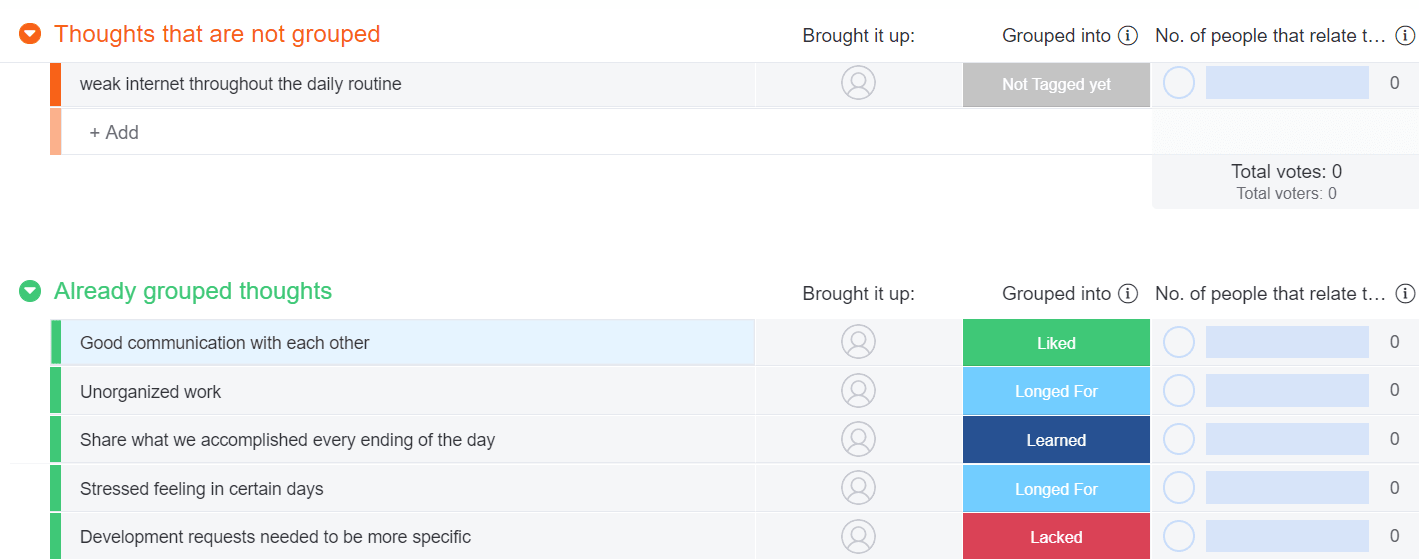
It’s not about the position, it’s about using a scrum master’s tactics
We’ve explained all about the scrum master role and its importance to the team, but with the right tools and tactics, any team can reach success.
Scrum teams with a high level of personal accountability and methods for fostering transparency, problem solving, and communication can deliver the responsibilities between themselves to maximize agility and efficiency even further. Wondering how to begin?
Check out how monday.com can support your next Scrum with our Scrum planning template.

